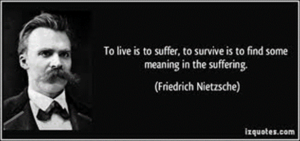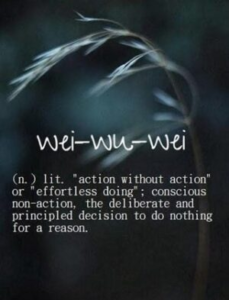This is perhaps the oldest and most urgent question. The proverbial Job raised the question. The wise man Solomon raised the same question. Countless philosophers and psychologists have wrestled with the mystery of suffering. After four decades of research, I still do not have a good answer, especially when it is up close and personal.
The INPM’s 2021 Meaning conference is over, but the INPM mission of turning suffering into flourishing continues. Right after the conference, my life was busier than ever, with all the demands for interviews, webinars, and research collaboration.
I felt that after all these years of grinding without much recognition, my time had finally arrived…
…But not the way I had anticipated. Just a few days ago, I suddenly collapsed and my world collapsed.
I had no idea what happened. My system simply shut down suddenly. I felt emotionally and physically exhausted. I had to struggle for my every breath. I lost interested in everything. My mind was clouded, and it could no longer think clearly. It was worse than feeling burnt out and helpless; it was worse than death, because I also experienced physical and emotional pain. Right away, I knew something very serious was happening.
What saved my life was my decision to let go and let God.
Yes, I decided to let go the seminar I would give at Harvard just a few days away. I had to let go of all the important papers which were all due within this month. I was also willing to let go my book projects and the online courses. I told my wife that if my breathing problem did not get better, she had to call our family doctor.
Almost miraculously, shortly after I decided to let go everything, a big burden came off my shoulder. I began to breath a lot easier.
In hindsight, it is not difficult to see why I was burnt out. In addition to organizing and promoting the conference, I had to give five presentations. I did not take any break after the conference and continued my hectic pace as if I were still in my prime.
Of course, I felt tired, but my willpower enabled me to continue to push myself. I told myself that I did not have too much time left, and I must get everything done before I die.
Fortunately, my body said: “Enough is enough” and it just stopped listening to me and shut down.
Now, I am struggling with the question: What is the meaning of this unexpected setback? What can I learn from it?

The Diagnostic and Transformative Value of Suffering
For an outsider, it was easy to see that my collapse was due to physical and emotional exhaustion. But why didn’t I see it coming? As a clinical psychologist, I could see easily see why all my clients or other people got into problems but I failed to notice the warning signs when it came to myself.
What went wrong? Why couldn’t I see my own problem? My wife kept warning me not to push myself too hard, but I put on a brave face and replied with a smile, “I don’t hurry, and I don’t worry; I only do one thing a time and Jesus is my help.”
But deep down, my anxiety and fatigue must have been building. I failed to detect it because of my faith in God and in myself, and because of my sacrificial spirit, willing to be burnt in order to give light to the people suffering in the dark.
All my good intentions and compassion for others have blinded me to my own needs for rest. Even though I taught others that life is a balancing act (Wong, 2020), I had lost my balance by failing to say “No” to all the opportunities to share my message.
But my misfortune is also my fortune. It could have been worse – I could have died of a heart attack or become paralyzed because of a stroke. Therefore, I am grateful for the opportunity to change my life.
Another unexpected blessing is that now I have a deeper understanding of the transformative power of Wu Wei which I often wrote about without that deeper understanding. Now I have personally experienced how Wu Wei can save us from a lot of stress and suffering.
 My readers may still remember that I first discovered that one could attain mature happiness while living in hell (Wong 2008; Wong & Bowers, 2018).
My readers may still remember that I first discovered that one could attain mature happiness while living in hell (Wong 2008; Wong & Bowers, 2018).
Now, I have discovered what Wu Wei means – it means no more attachment. Yes, let go of all attachments no matter how meaningful and important. Life, after all, is about the willingness to let go of life. We can transcend all our troubles and suffering by embracing what we fear most. We are finally free to enjoy life and flourish when we are ready to let go of our attachments.
Now, I can breathe easier. Now, I may feel well enough to give a seminar at Harvard on “The surprising new science of suffering,” not as an abstract, scientific concept, but as a living truth of how to transform suffering into flourishing.
References
- Wong, P. T. P. (2008). To hell and back and what I have learned about happiness. International Network on Personal Meaning. Retrieved from http://www.meaning.ca/archives/archive/art_hell_and_back_P_Wong.html
- Wong, P. T. P. (2020). How to Find Inner Peace & Life Balance in Times of Crisis? Dr. Paul T. P. Wong. http://www.drpaulwong.com/the-concluding-chapter-how-to-find-inner-peace-life-balance-in-times-of-crisis/
- Wong, P. T. P., & Bowers, V. (2018). Mature happiness and global wellbeing in difficult times. In N. R. Silton (Ed.), Scientific concepts behind happiness, kindness, and empathy in contemporary society. IGI Global.
Cite
Wong, P. T. P. (2021, October 11). Why do we suffer? [President’s Column]. Positive Living Newsletter. http://www.drpaulwong.com/a-festival-to-celebrate-the-human-spirit/

 Meaning Conference 2025 will be the INPM’s first in-person conference with a virtual option after the pandemic.
Meaning Conference 2025 will be the INPM’s first in-person conference with a virtual option after the pandemic.